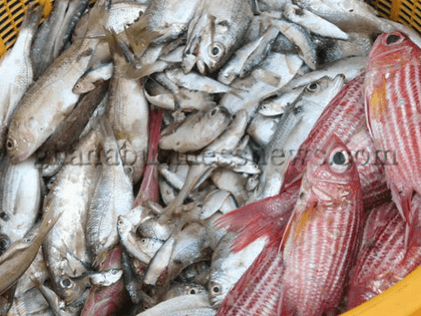New report accuses EU countries of unlawful fishing in African waters
 The advocacy group, Oceana says it has found EU flagged countries doing illegal fishing in the waters of some African countries.
The advocacy group, Oceana says it has found EU flagged countries doing illegal fishing in the waters of some African countries.
In a report it published today, September 12, 2017, Oceana says it found that four European countries authorized illegal fishing in the waters of The Gambia and Equatorial Guinea between April 2012 and August 2015.
“Using data from Global Fishing Watch, an online technology tool that provides the first global view of commercial fishing activity, Oceana found that Greece, Italy, Portugal and Spain awarded private fishing authorizations, which granted individual vessels access to these waters in contravention of EU law,” the group said.
According to Oceana, EU countries cannot legally issue permits for their vessels to fish in the waters of nations with dormant fishing agreements, for example with The Gambia and Equatorial Guinea.
It indicated that with the help of Global Fishing Watch, it found that:
- 19 EU-flagged vessels fished unlawfully for more than 31,000 hours between April 2012 and August 2015, which included:
- 18 EU-flagged vessels from Greece, Italy, Portugal and Spain fishing in the waters of The Gambia for 31,706 hours.
- 1 EU-flagged vessel from Spain fishing in the waters of Equatorial Guinea for 170 hours.
Oceana notes that EU vessels fishing on the high seas or in foreign waters contribute 28 per cent of the total EU catch. It is estimated that EU Member States have awarded more than 23,000 fishing vessel authorizations to fish outside EU waters since 2008, it adds.
The EU’s distant water fleet fishes around the world; distant water fishing under official EU access agreements (termed Sustainable Fisheries Partnership Agreements) often occurs in developing countries’ waters, including those on the West and East African coasts, it states.
Beth Lowell, senior campaign director for illegal fishing and seafood fraud at Oceana was quoted in a press release saying, “With the help of technologies like Global Fishing Watch, we can now see what’s happening beyond the horizon. Countries can also play their part in increasing transparency at sea by requiring vessel tracking for all fishing vessels and making all fishing agreements public.”
The group pointed out a new regulation on fishing that the EU agreed on in June 2017.
“In June 2017, the EU agreed on a new regulation governing the activities of the EU’s fishing fleet outside of its waters. The reformed law requires equal oversight of fishing vessels, regardless of where they operate or under what type of agreement. When fully implemented, the new law will significantly improve the oversight of the EU’s external fishing fleet and ensure the continued leadership of the EU in matters of global fisheries governance,” it added.
By Emmanuel K. Dogbevi
Copyright ©2017 by Creative Imaginations Publicity
All rights reserved. This news item or any portion thereof may not be reproduced or used in any manner whatsoever without the express written permission of the publisher except for the use of brief quotations in reviews.
